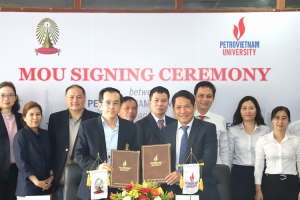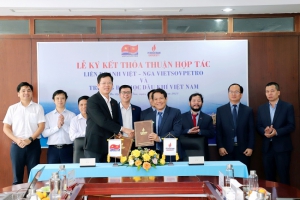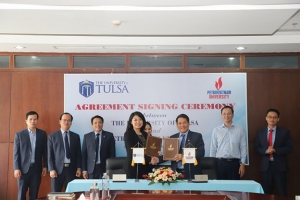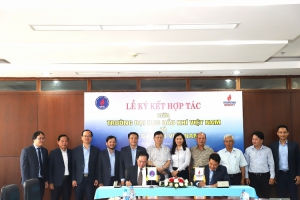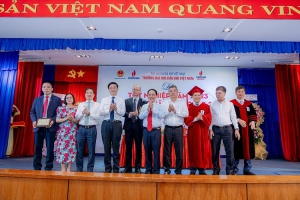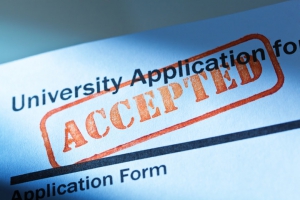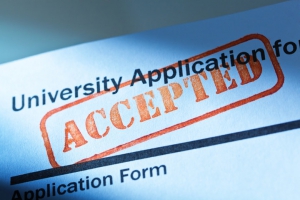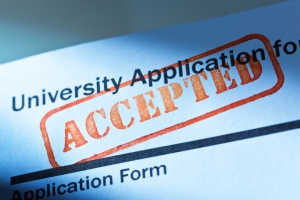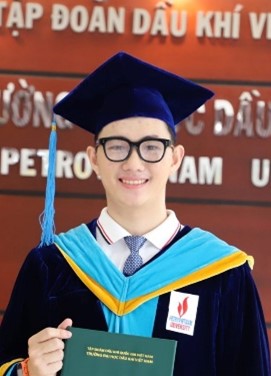Super User
On September 27, 2022, in Ba Ria City, Petrovietnam University (PVU) successfully signed a Memorandum of Understanding (MOU) with the Petroleum and Petrochemical College (PPC) of Chulalongkorn University (CU), Thailand.
This event marks a strategic move by PVU to enhance its educational quality and strengthen international cooperation.
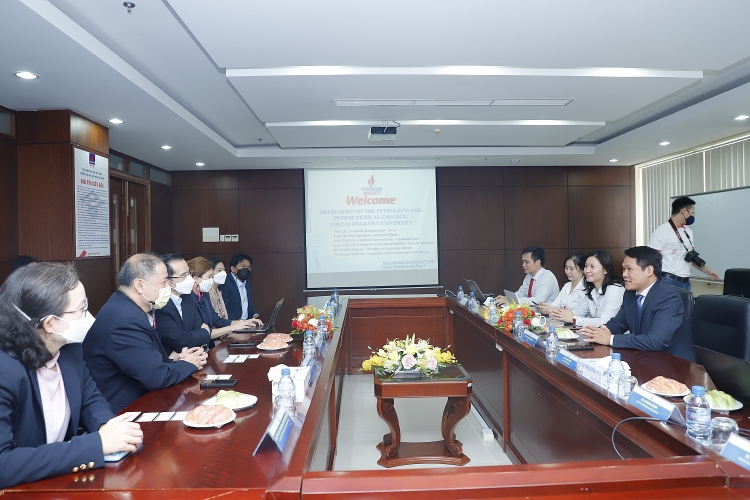 |
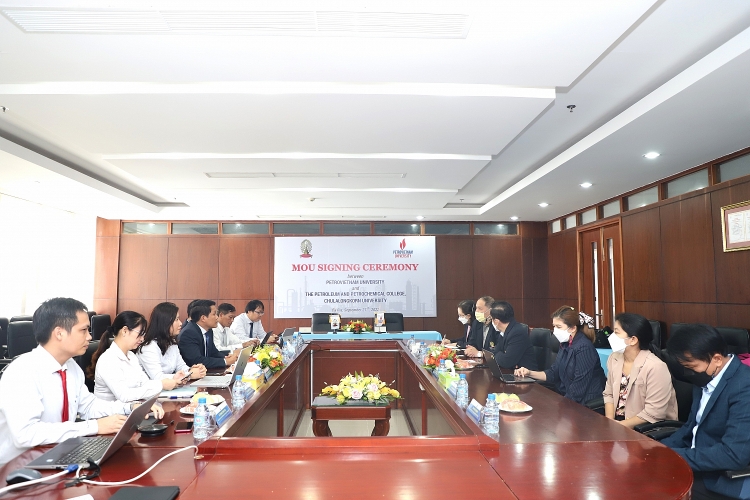 |
Representatives from PVU introduced the university, its staff, departments, and various educational and international cooperative programs. Dr. Phan Minh Quoc Binh from PVU and Dr. Pramoch Ransunvigit from PPC led the signing of the cooperation agreement.
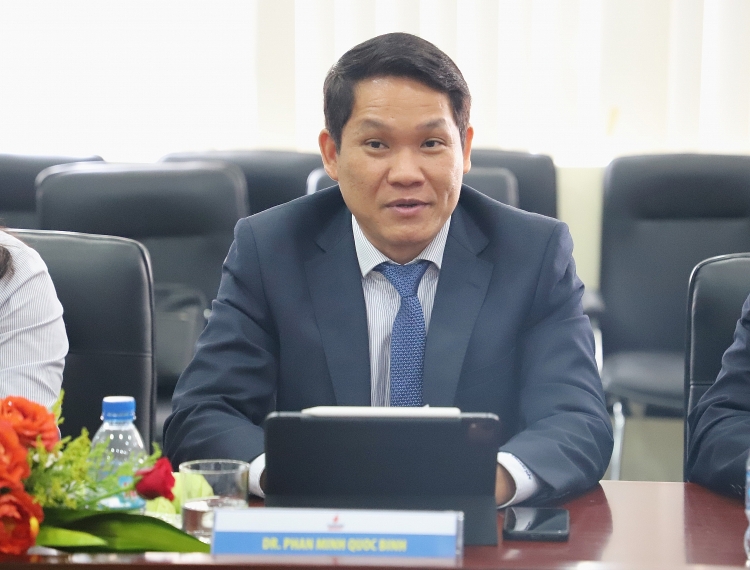 |
 |
 |
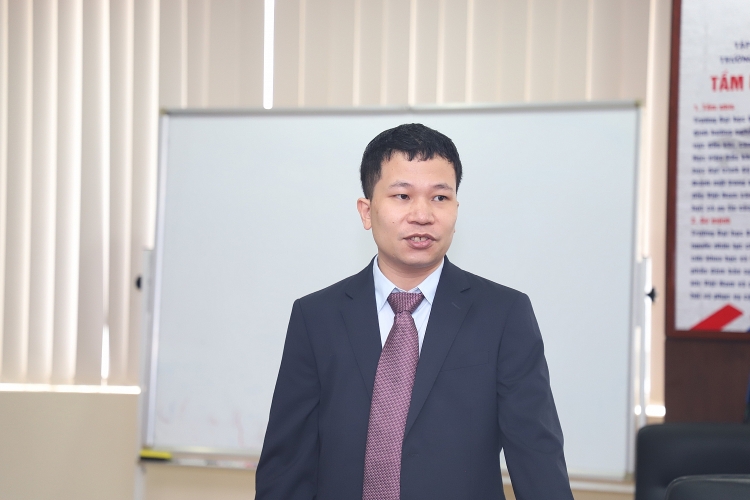 |
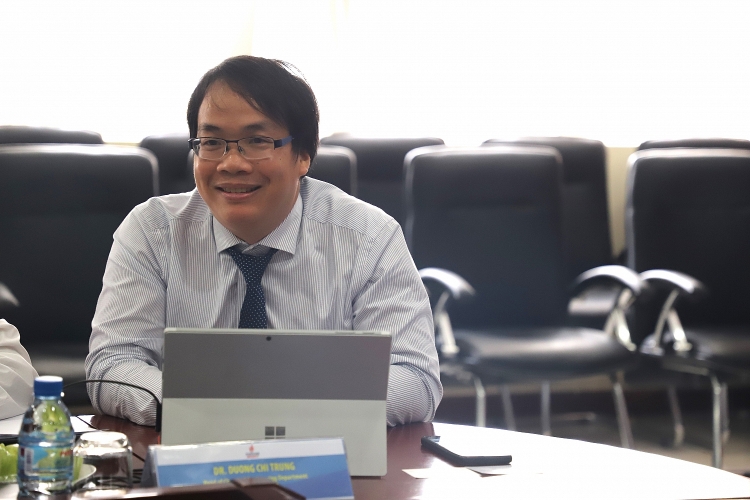 |
During the meeting, Dr. Binh and Dr. Ransunvigit, along with leaders from both institutions, discussed scientific research collaborations and proposed a 4+1 master's program. This program allows PVU graduates to pursue an additional year of study at PPC to obtain a master's degree.
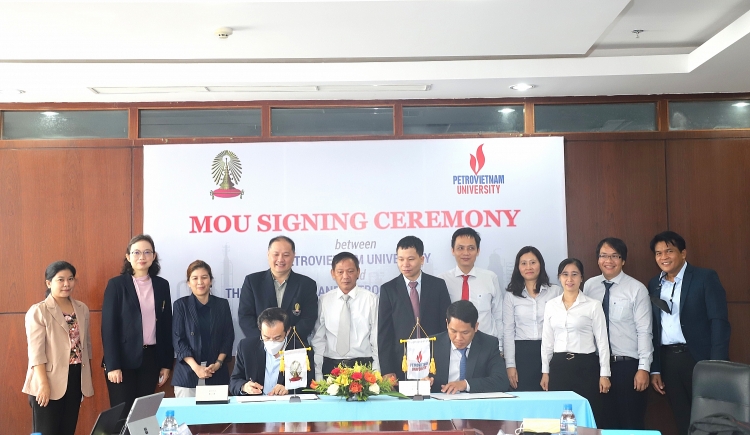 |
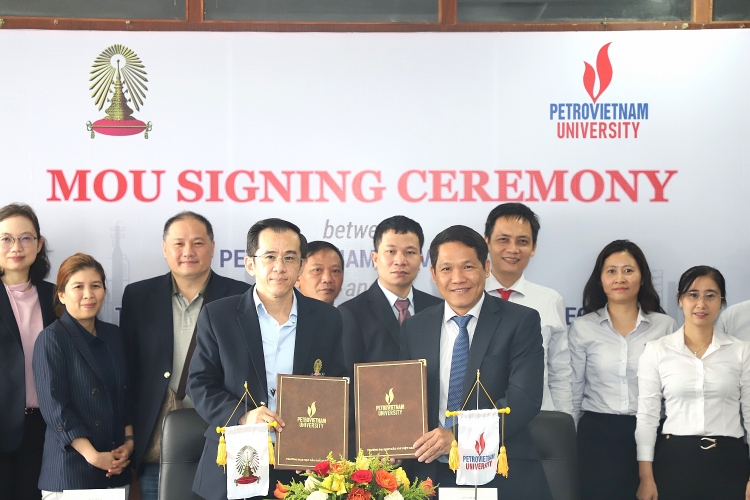 |
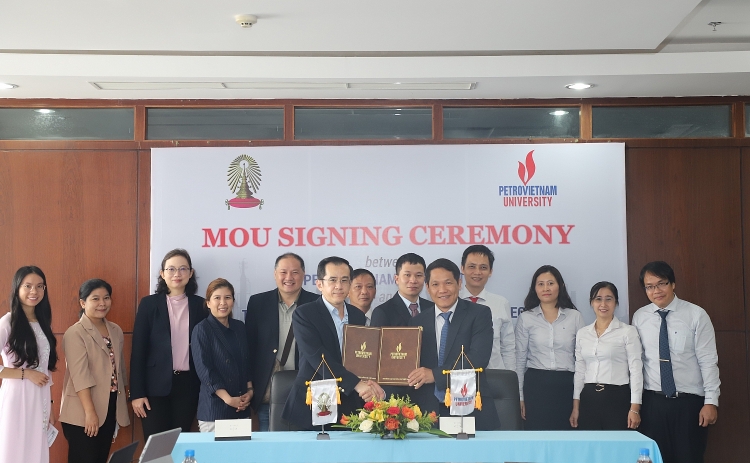 |
The MOU, valid indefinitely unless terminated by either party, focuses on areas such as expert, faculty, and student exchanges; co-supervision of postgraduate research; collaborative scientific research projects; information and research paper exchanges; experience sharing in research, teaching, training, and community activities; joint organization of scientific conferences and seminars; development of future training programs; and sharing scholarship information for students.
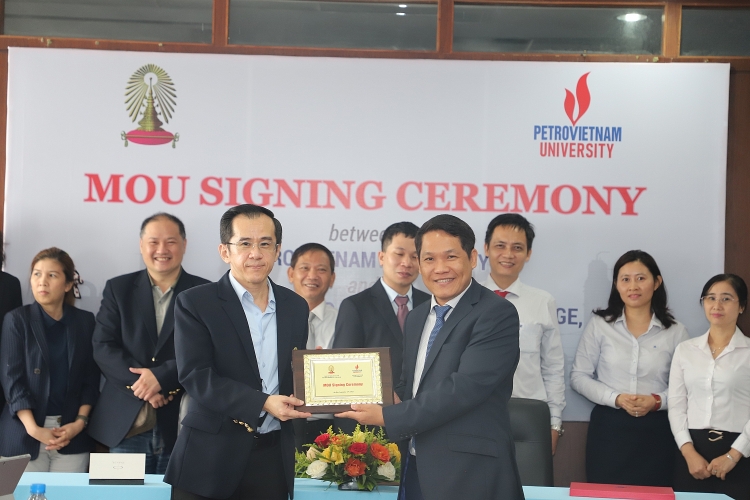 |
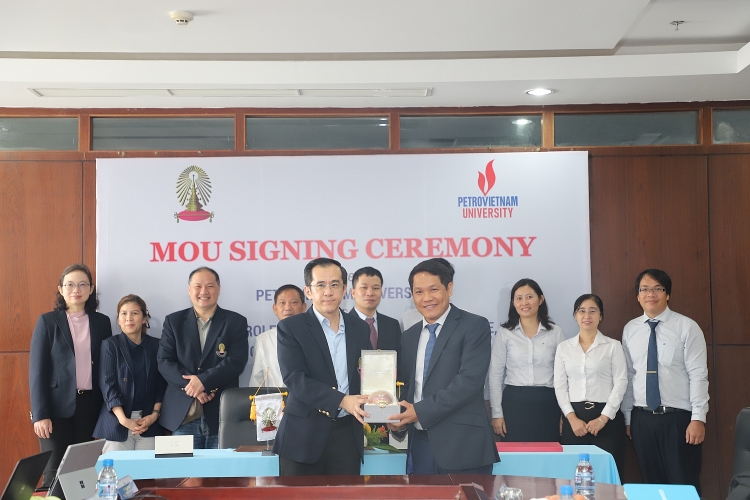 |
The visit included a tour of PVU's laboratory facilities by the PPC delegation. PPC, a postgraduate education unit of Chulalongkorn University, focuses on advanced petroleum technology research. Chulalongkorn University, located in Bangkok, is the oldest university in Thailand and highly regarded nationally and regionally.
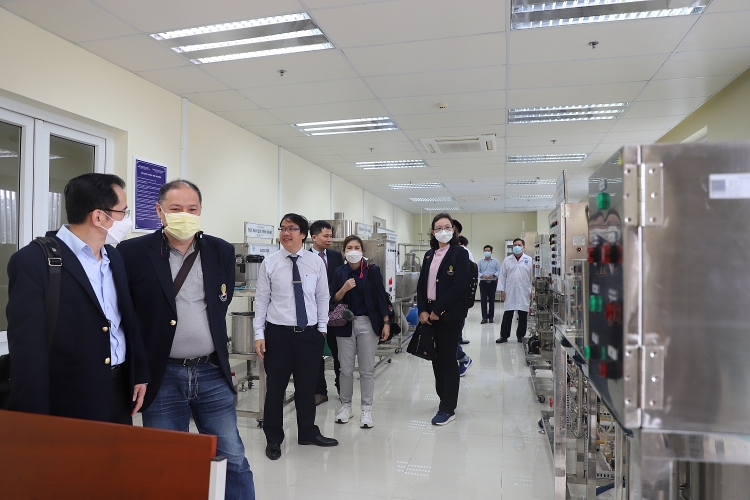 |
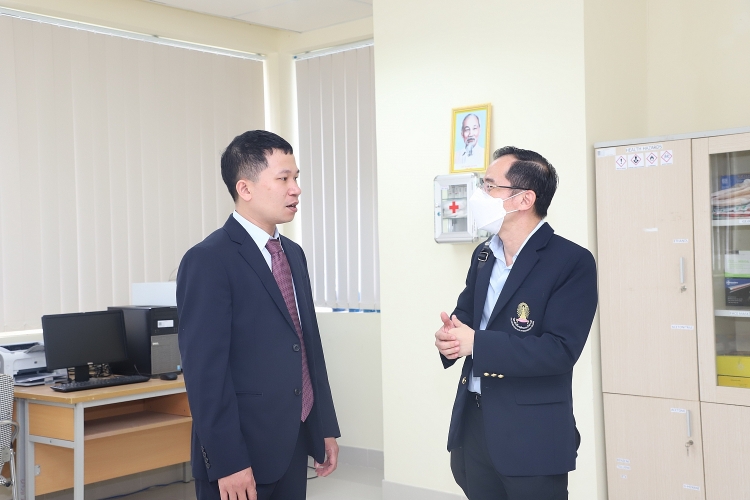 |
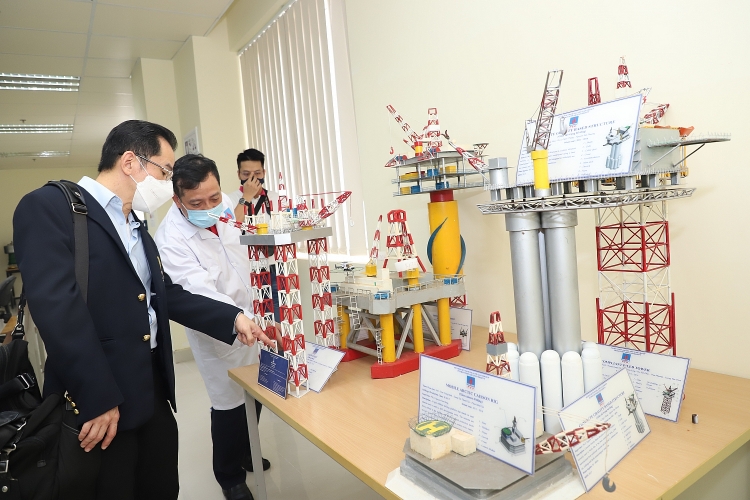 |
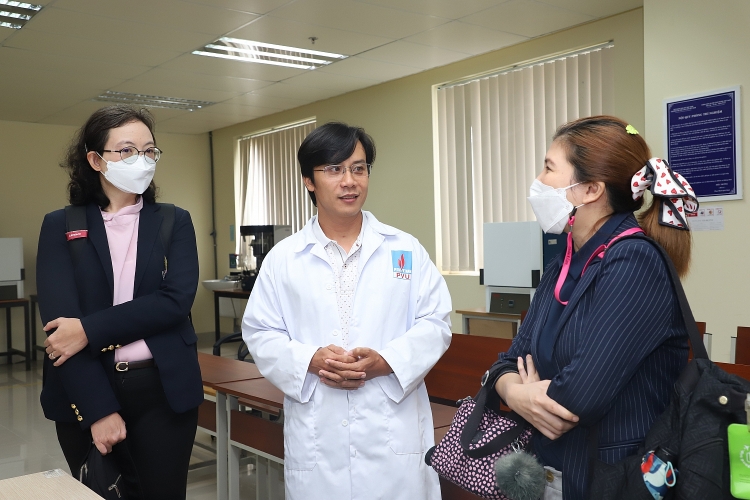 |
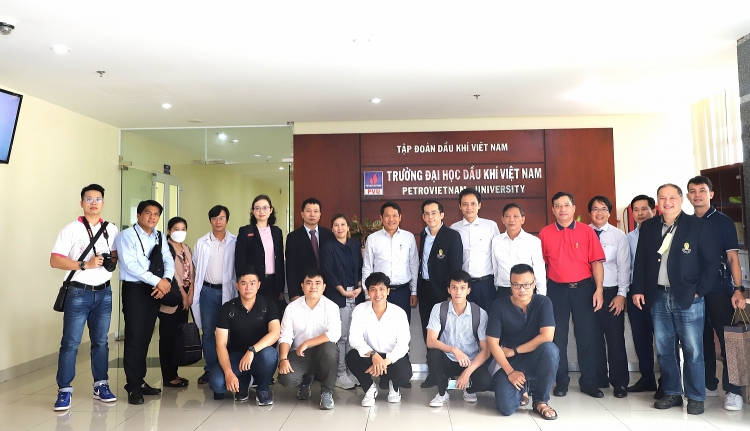 |
The signing of the MOU signifies the beginning of a promising diplomatic and friendly relationship between the two institutions, with both parties looking forward to implementing meaningful and practical cooperative activities, including joint scientific research and international publications.
An Nhiên
On December 20, 2023, in Ba Ria City, the Vietsovpetro joint venture, a collaboration between Vietnam and Russia, signed a cooperation agreement with Petrovietnam University (PVU) and awarded 25 scholarships to its students.
The event was attended by prominent figures from Vietsovpetro, including Deputy General Director Mai Dang Tuan, Deputy Head of Human Resources Vo Van Chau, Deputy Head of Geology and Mining Le Hong Quan, and representatives from various departments.
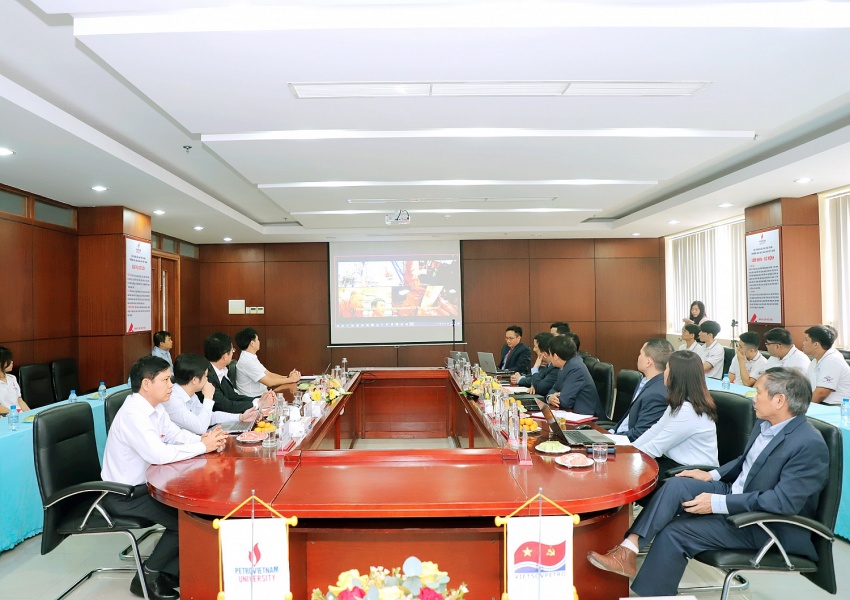 |
Tiếp đón đoàn công tác, về phía PVU có TS Phan Minh Quốc Bình - Hiệu trưởng Nhà trường; cùng các thành viên trong Ban Giám hiệu, lãnh đạo các phòng/khoa/trung tâm của Nhà trường.
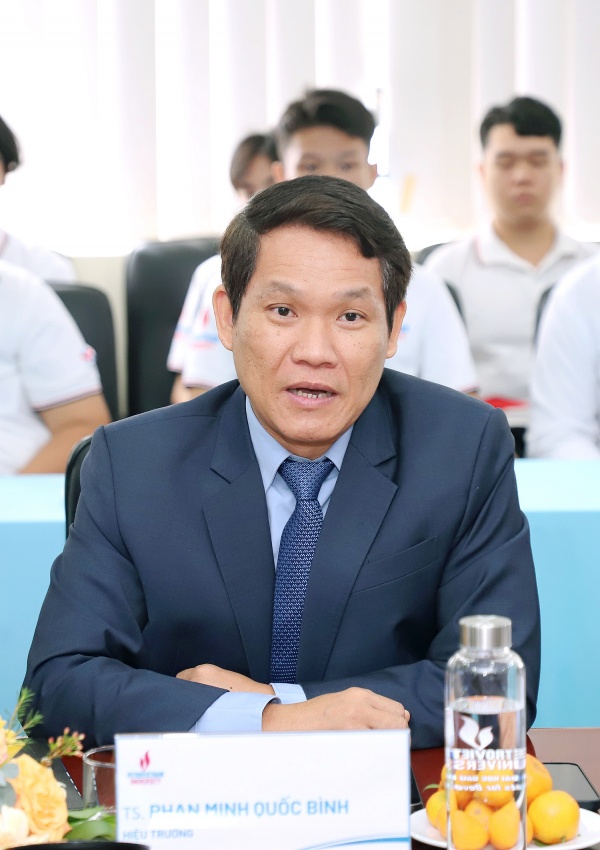 |
PVU welcomed the delegation, led by its President, Dr. Phan Minh Quoc Binh, along with members of the university's administrative board and leaders of its departments and centers. During the event, Dr. Binh provided an overview of PVU's achievements and its aspiration for modernization and digital transformation in line with the current energy sector trends. He highlighted PVU's attainment of the ABET standard and its ongoing commitment to quality and reputation, along with the university's intensified research efforts.
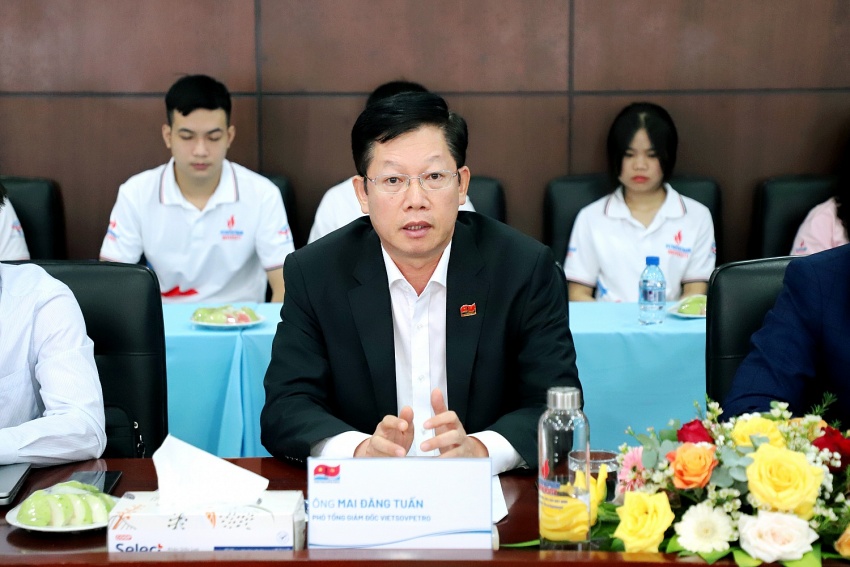 |
Mr. Mai Dang Tuan congratulated PVU on its accomplishments and expressed his pleasure in visiting and working with PVU. He gave an overview of Vietsovpetro's history and development, noting its significant achievements in oil extraction and revenue generation over 42 years. He also discussed Vietsovpetro's capabilities and experience in providing high-quality services in the oil, gas, and renewable energy sectors, and its exploration of investment opportunities in renewable energy fields, especially offshore wind power and hydrogen technology.
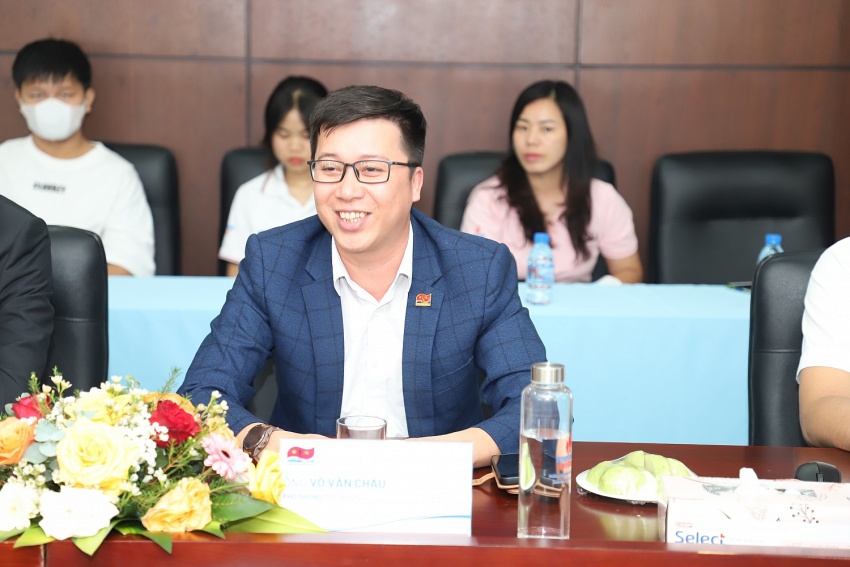 |
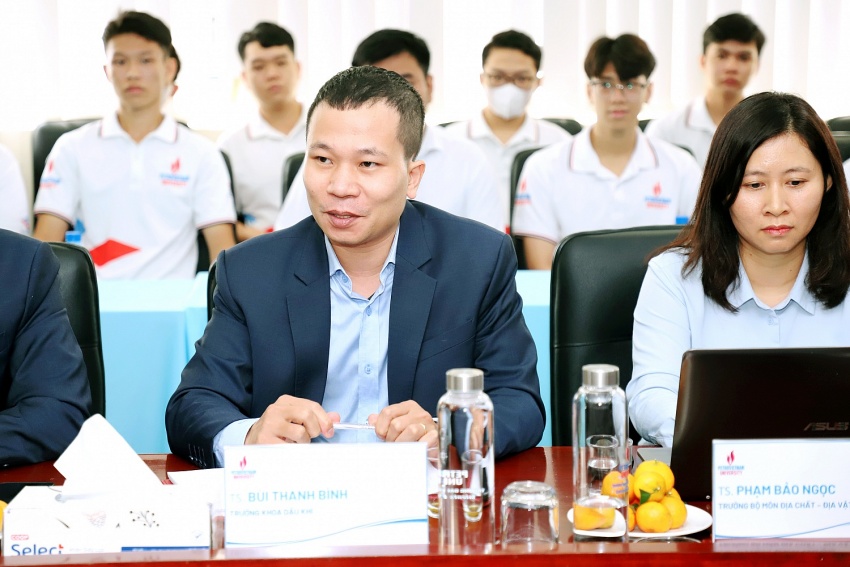 |
The meeting included discussions on human resource development, technical services, scientific research, and other collaborative activities based on the strengths of both organizations.
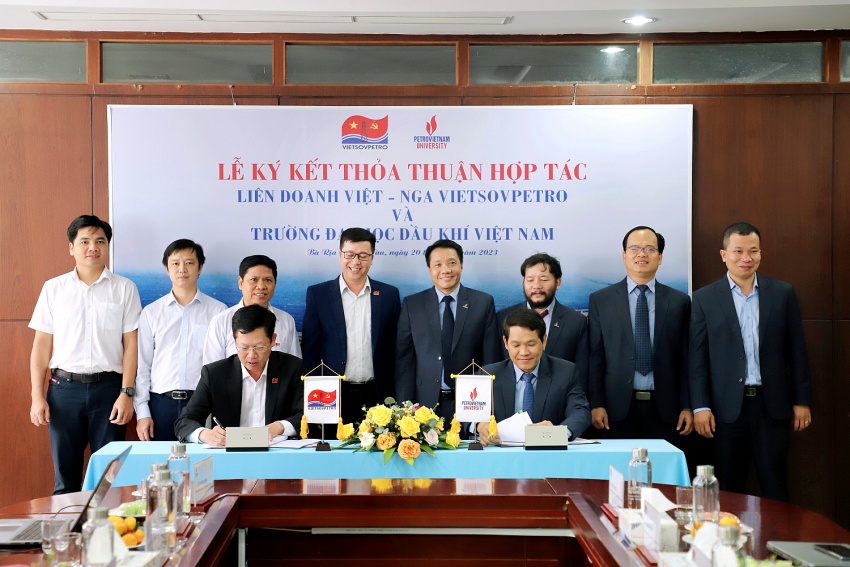 |
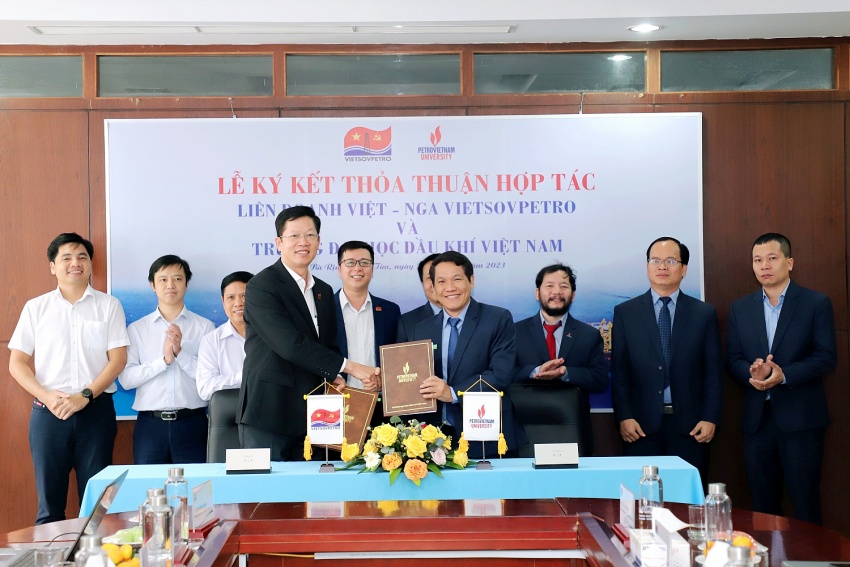 |
The signed agreement included provisions for joint training and research initiatives, facility visits, and participation in professional activities and academic conferences. PVU will collaborate with Vietsovpetro to organize master's degree courses for its employees based on specific training needs, and both parties will work together on long-term scientific research programs and technology applications.
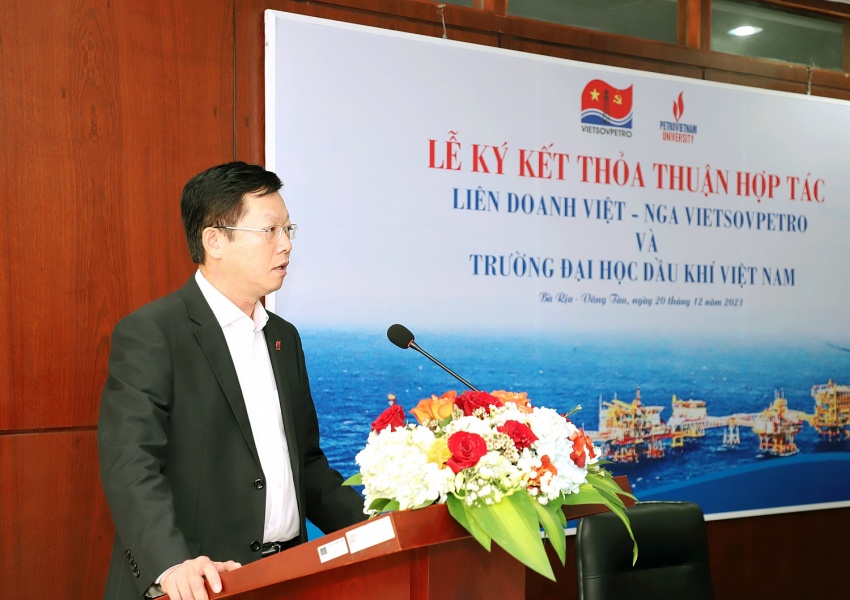 |
In his speech, Mr. Mai Dang Tuan emphasized the cooperation agreement's demonstration of the close interaction between the production and educational units and their commitment to applying the latest knowledge and technology for community and societal benefits. He expressed confidence that the partnership would enhance training quality, research, and application of advanced science and technology, thereby improving human resource quality and business efficiency.
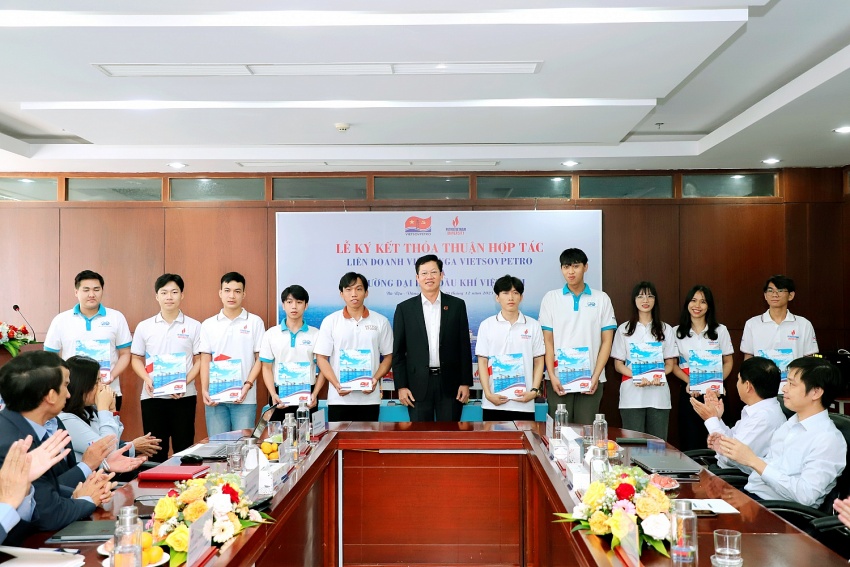 |
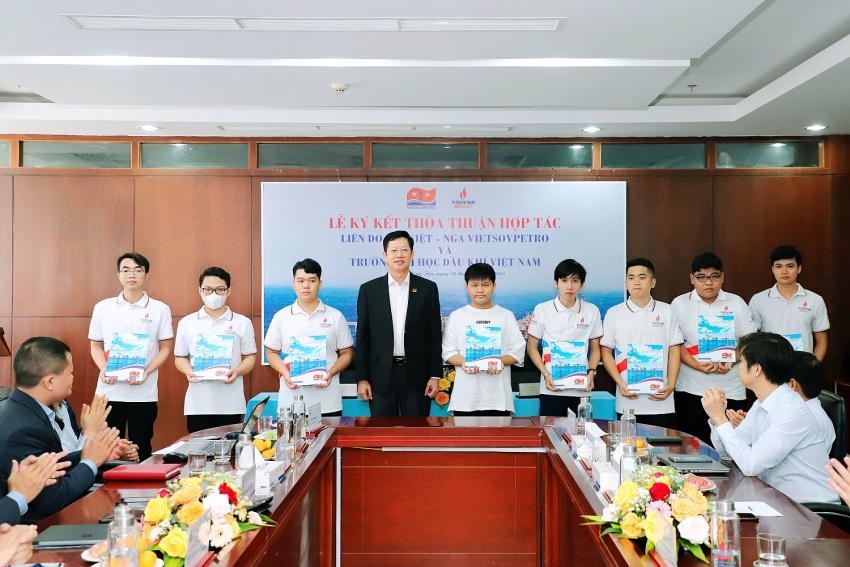 |
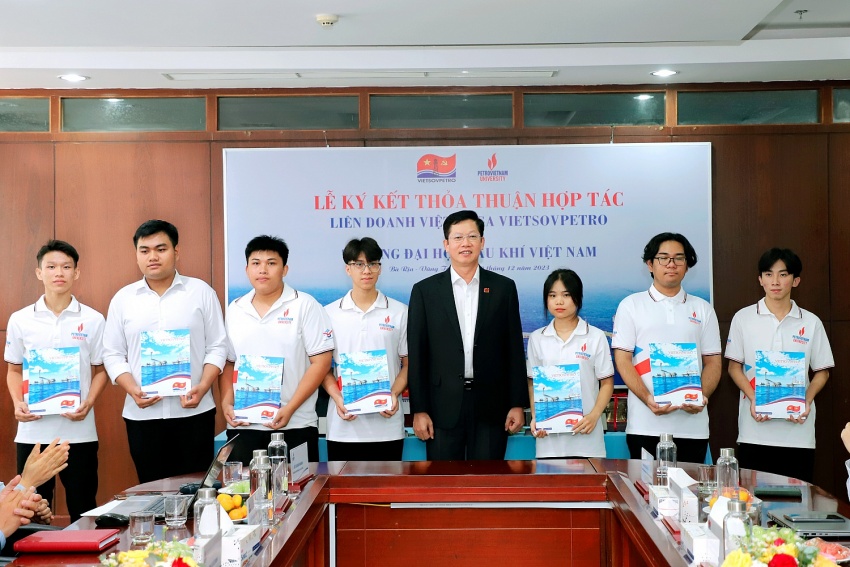 |
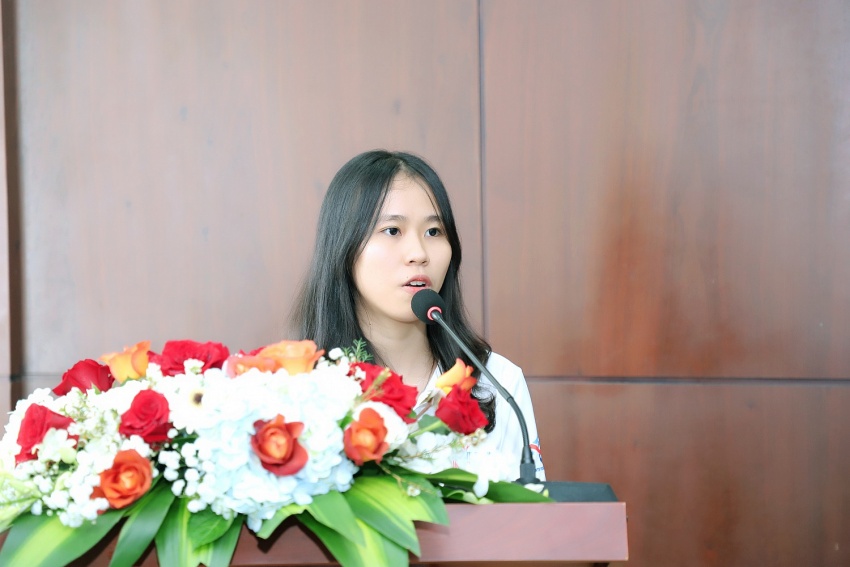 |
Student Le Thi Bich Thao, representing the scholarship recipients, expressed gratitude for the support, which she described as both financial aid and a motivation for further academic and personal development.
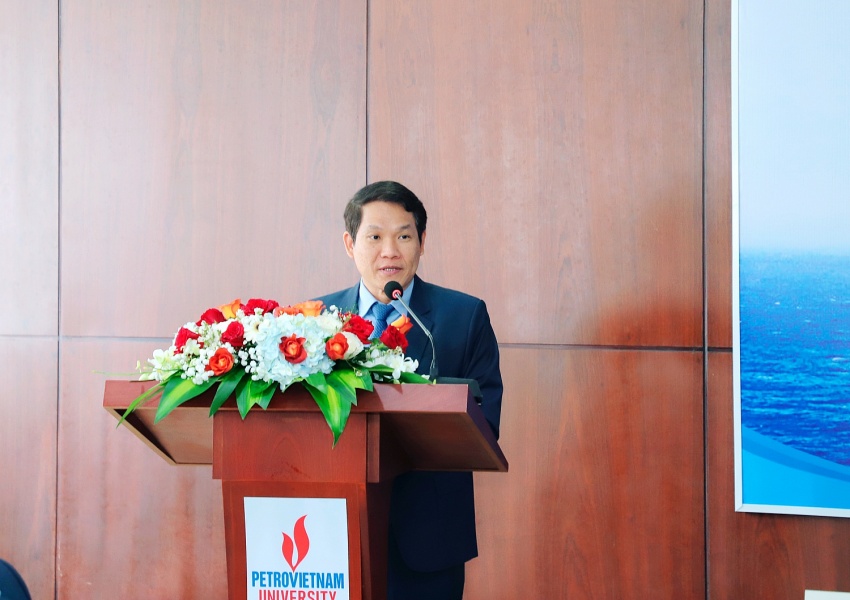 |
Dr. Phan Minh Quoc Binh expressed his gratitude to Vietsovpetro for their ongoing support and looked forward to continued collaboration. He congratulated the scholarship recipients and encouraged them to strive in their studies and contribute to the development of the joint venture, Petrovietnam, and Vietnam's oil, gas, and energy sectors.
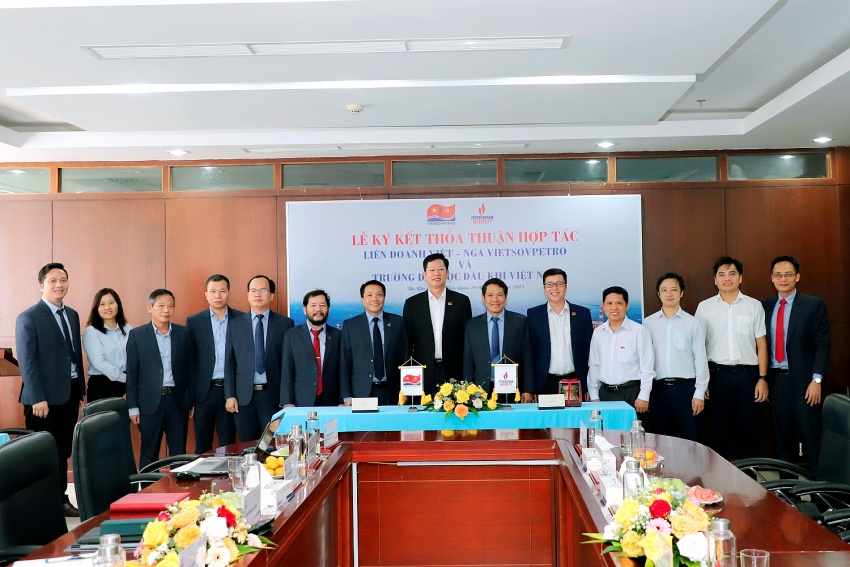 |
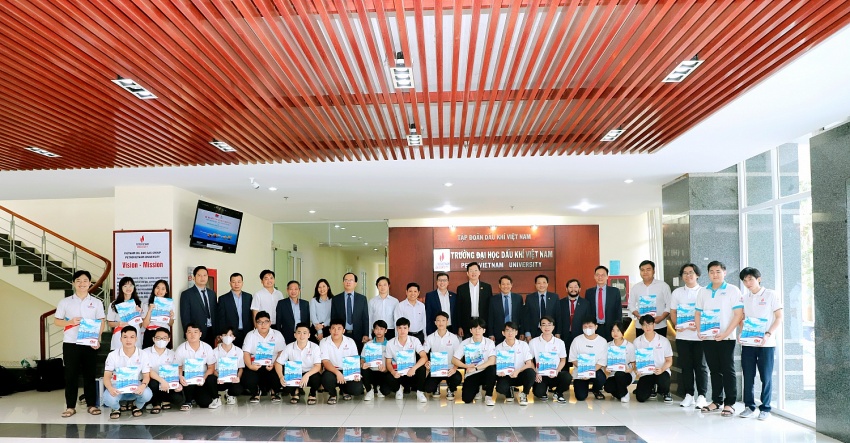 |
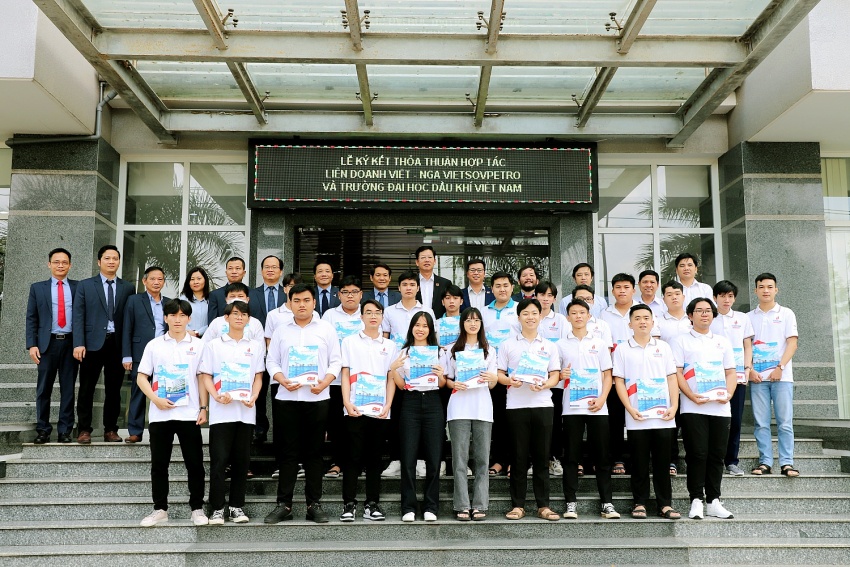 |
Hồng Thắm - Đức Tiến
Petrovietnam University (PVU) signed a cooperation agreement with the University of Tulsa (TU) - USA
On October 7, 2023, in Ba Ria City, Petrovietnam University (PVU) signed a cooperation agreement with the University of Tulsa, USA.
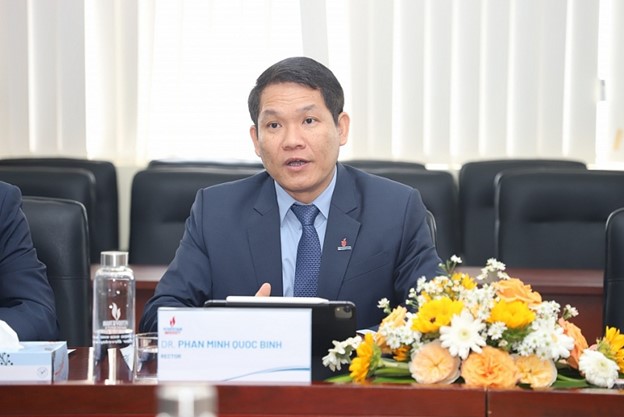
The signing ceremony was attended by notable figures from both institutions. From PVU, there were Dr. Phan Minh Quoc Binh - President, Dr. Le Quoc Phong - Vice President, Dr. Vu Minh Hung - Head of the Basic Science Department, Dr. Bui Thanh Binh - Head of the Petroleum Faculty, and Dr. Truong Thanh Tuan - Head of the Foreign Affairs & Science and Technology Department, along with Assoc. Prof. Dr. Le Van Sy - Vice President of the Petroleum College.
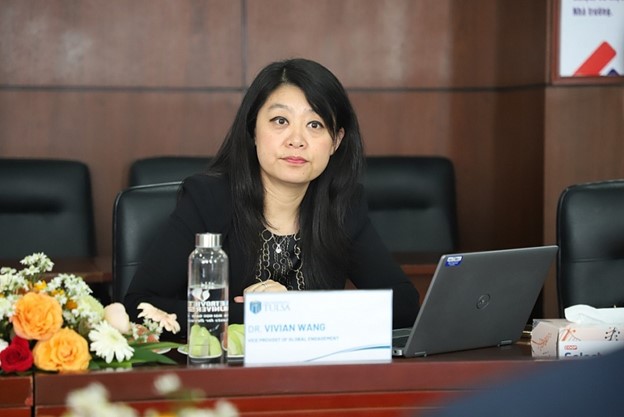
Representing the University of Tulsa (TU) were Dr. Vivian Wang - Vice President in charge of International Cooperation and Ms. Nguyen Thu Dung - TU's representative in Vietnam. Established in 1894 in Tulsa, Oklahoma, USA, TU has established itself as a leading university in the United States, ranking among the top 100 in the country.
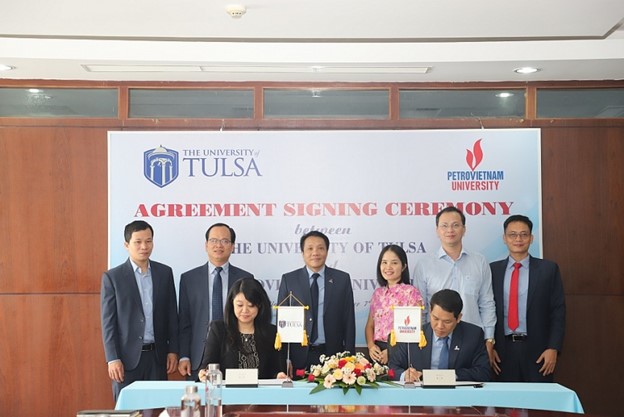
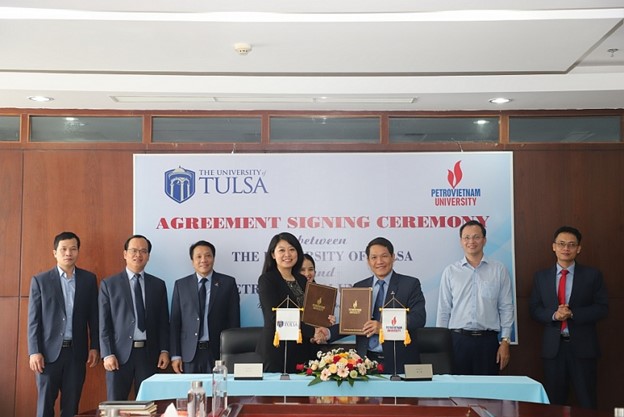
The cooperation agreement aims to enhance training quality, develop human resources, support students with scholarships, and foster comprehensive cooperation between PVU and TU. This partnership reaffirms the strong, long-term relationship between the two institutions. In addition to training and research, the agreement opens opportunities for extensive collaboration in various fields. Both parties anticipate mutual benefits for students, faculty, and their respective organizations.
Highlights of the agreement include the Visiting Scholars program, where TU will host a PVU faculty member each semester to conduct research and improve teaching quality. The discussion also covered future collaborations, including summer internship opportunities for students from both countries, student exchange programs, preferential tuition fees for PVU students at TU, scholarships for outstanding PVU postgraduate students, sharing online teaching resources, short-term courses taught by TU faculty at PVU, and joint research and development projects.
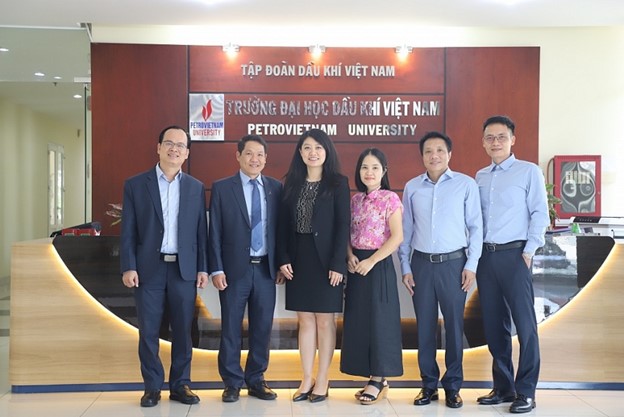
An Nhiên
On the afternoon of March 28, in Ba Ria City, Petrovietnam University (PVU) hosted and signed a cooperation agreement with the Vietnam Petroleum Association (VPA).
The signing ceremony and meeting were attended by VPA representatives including Dr. Nguyen Quoc Thap - Chairman of the Association, Mr. Pham Van Huy - Secretary-General, Dr. Dinh Van Son - Head of Foreign Affairs, Mr. Le Duy Phuc - Deputy Chief of Office, and Mr. Nguyen Van Duc - Chairman of the Vung Tau Petroleum Sub-Association. Mr. Pham Thuan Thien, Deputy Editor-in-Charge of New Energy Magazine/PetroTimes, was also present.
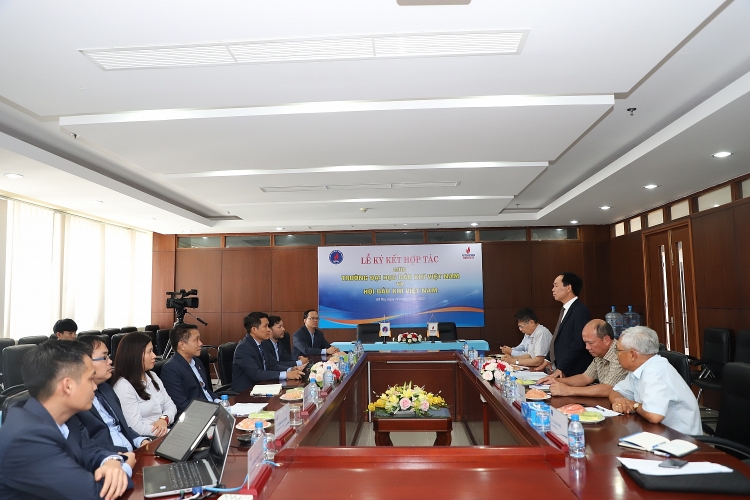 |
PVU was represented by its President, Dr. Phan Minh Quoc Binh, along with members of the university's administrative board and leaders of its departments and centers.
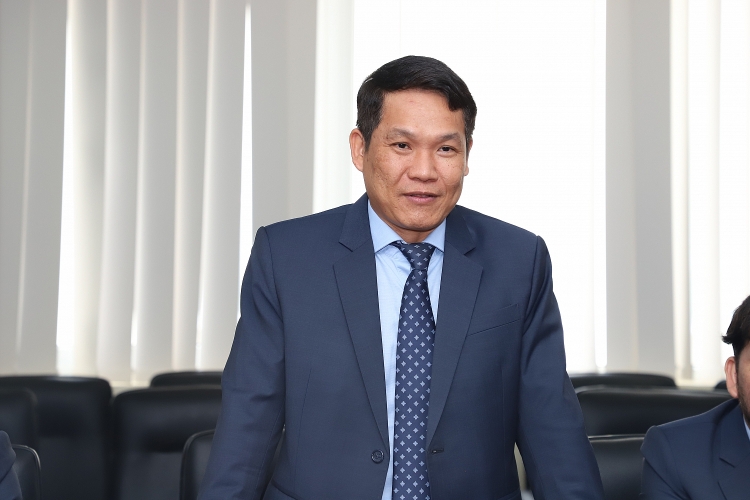 |
In his speech, Dr. Phan Minh Quoc Binh expressed pleasure and excitement about the cooperation between PVU and VPA. He thanked VPA for their ongoing support and looked forward to further collaboration in PVU's development. Dr. Binh provided an overview of PVU, emphasizing its modernization and digital transformation in line with the energy sector's trends and highlighting PVU's achievement of the ABET standard.
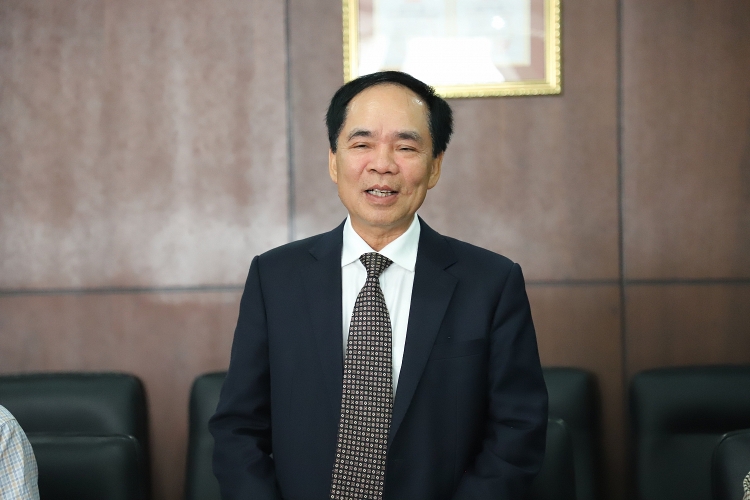 |
Dr. Nguyen Quoc Thap, in his address, commended PVU's accomplishments and expressed hope for PVU's continued progress and heightened role in high-quality training for the petroleum industry and society. He explained that VPA, a professional social organization under the Vietnam Union of Science and Technology Associations, plays a critical role in advising and reviewing research and policy regimes for energy sectors, especially oil and gas.
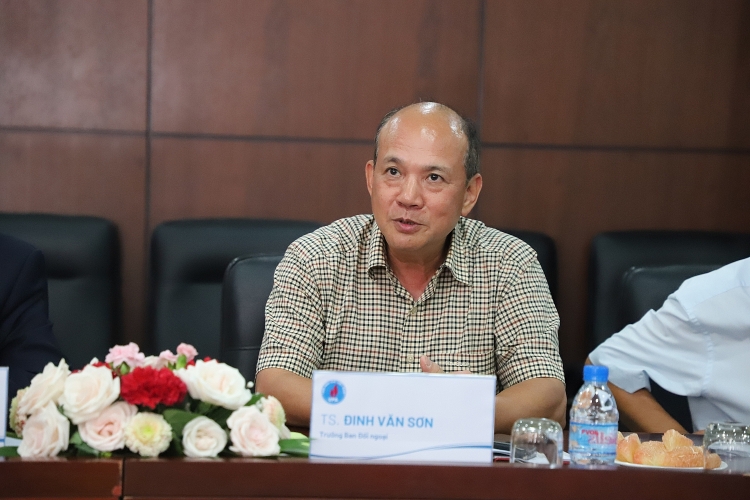 |
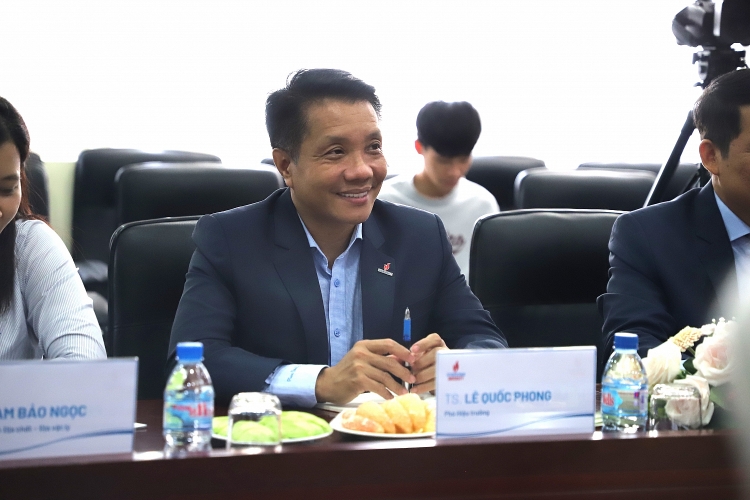 |
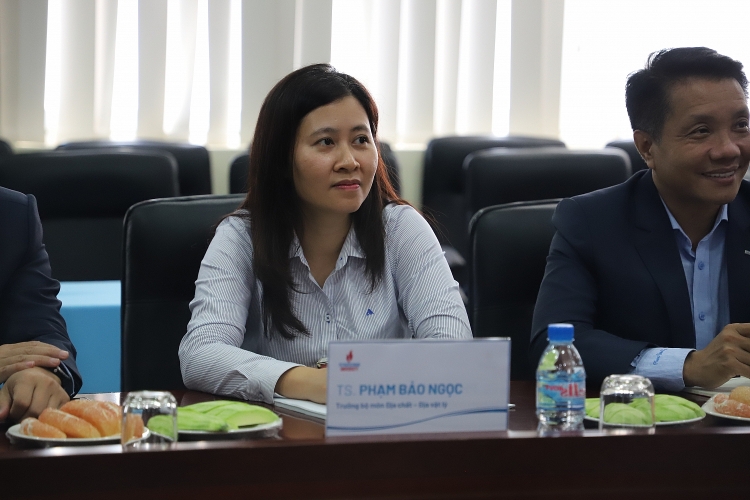 |
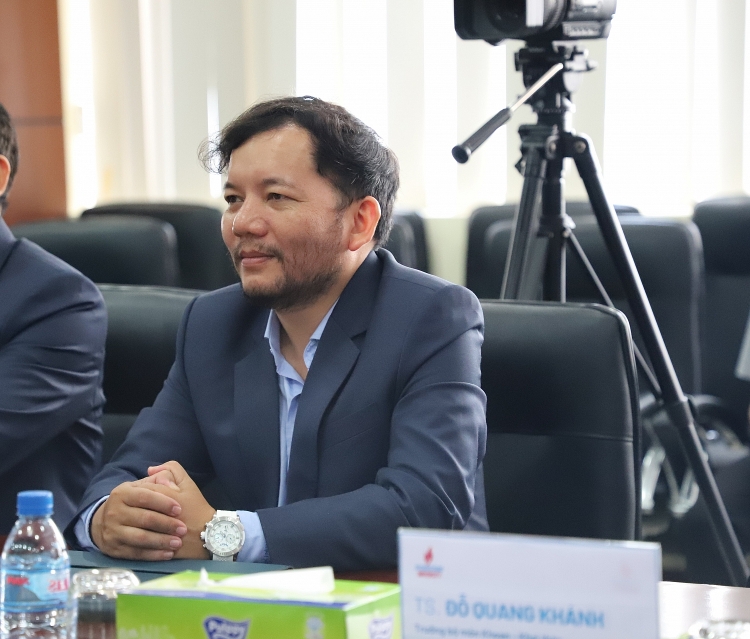 |
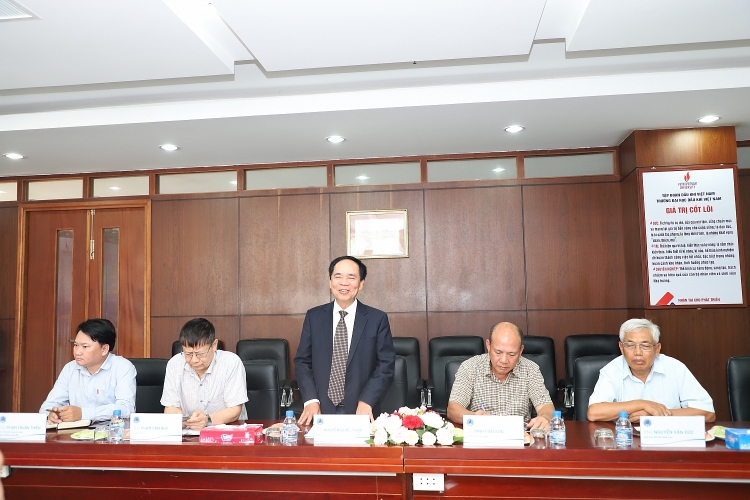 |
The cooperation between PVU and VPA involves consulting and reviewing training programs, course structures, curricula, and participating in short-term and advanced training courses. They will jointly conduct scientific research and technological development projects in petroleum fields, consult and review programs, projects, and research topics, and collaborate in organizing and participating in conferences, seminars, and field surveys.
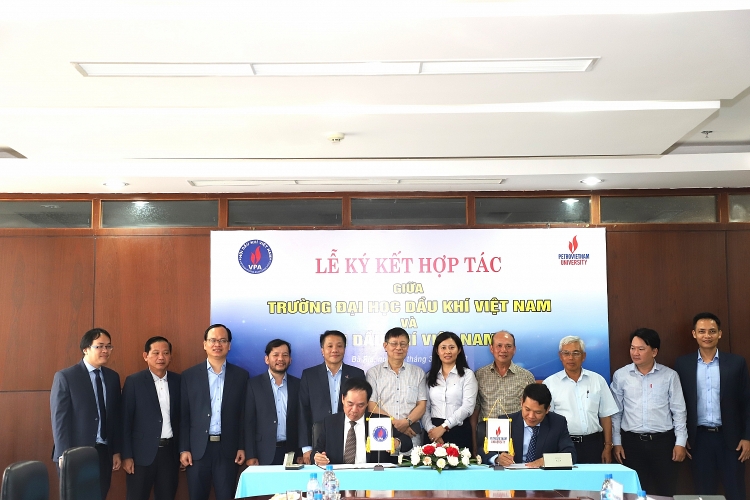 |
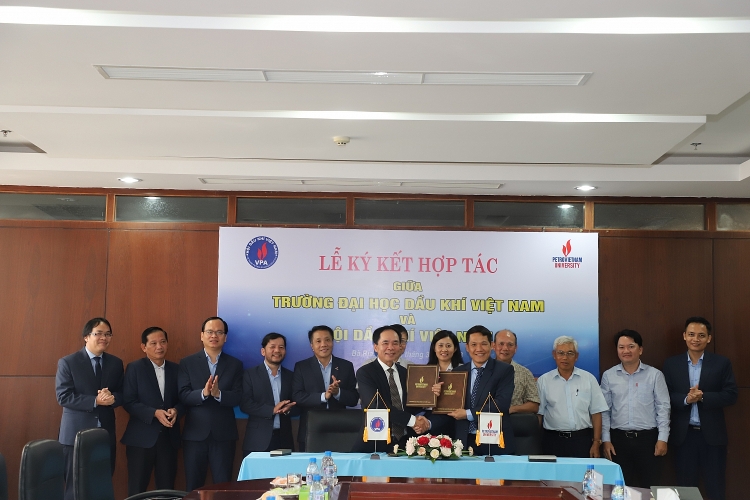 |
| TS Nguyễn Quốc Thập - Chủ tịch VPA và TS Phan Minh Quốc Bình - Hiệu trưởng PVU ký kết thỏa thuận hợp tác |
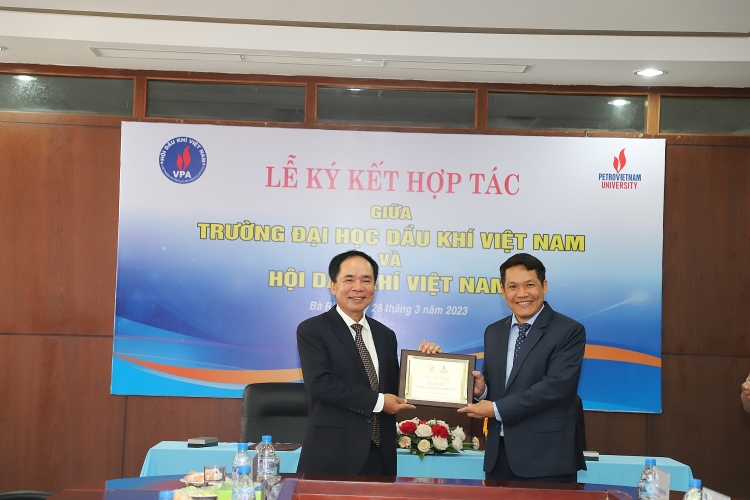 |
The cooperation agreement between PVU and VPA is expected to be a driving force and opportunity for PVU to engage more high-quality, experienced human resources for consulting, reviewing scientific research projects, as well as in undergraduate and postgraduate education, and advanced training for students, scholars, and professionals in and outside the petroleum industry.
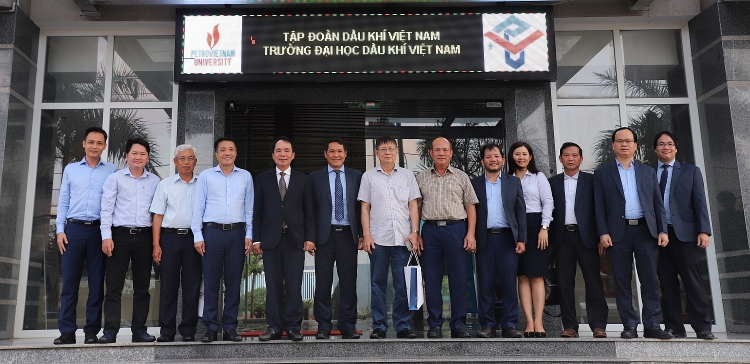 |
| The event concluded with a commemorative photo session between the leaders of VPA and PVU. |
Hồng Thắm
On October 12, 2023, in Ba Ria City, during the graduation ceremony of 2023 and the commencement of the 2023-2024 academic year, Petrovietnam University (PVU) signed cooperation agreements with Zarubezhneft EP Vietnam and Binh Son Refining and Petrochemical Joint Stock Company (BSR).
The signing event was attended by representatives from the Ba Ria-Vung Tau provincial departments, leaders of Vietnam Oil and Gas Group (Petrovietnam), the Vietnam Petroleum Institute, former leaders of the group, specialized departments/offices, member units of the group, domestic and international partners of the group and PVU, as well as leaders from PVU, Zarubezhneft EP Vietnam, and BSR.
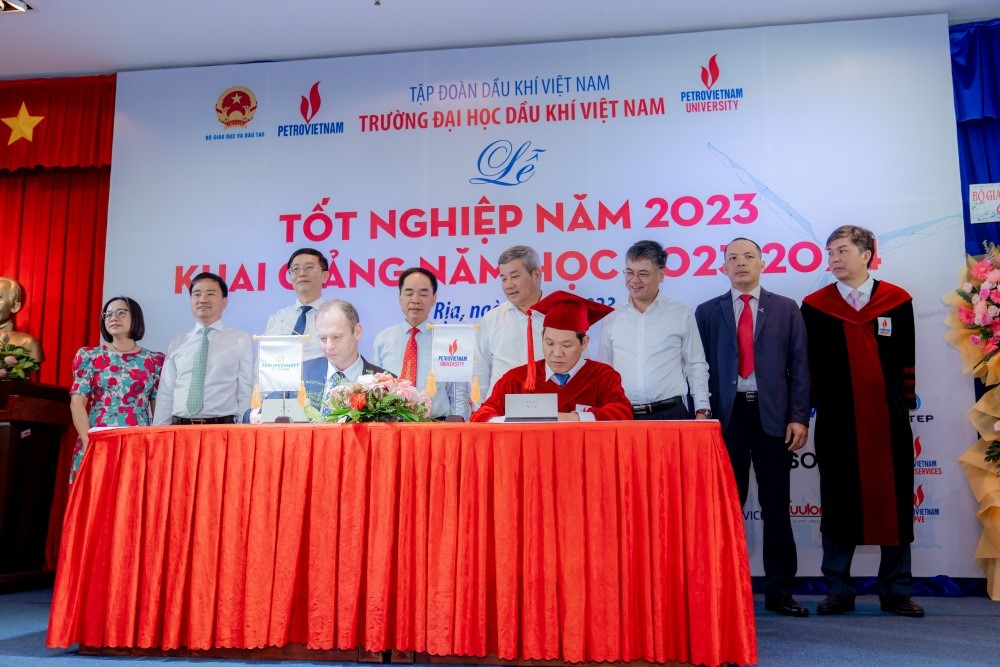
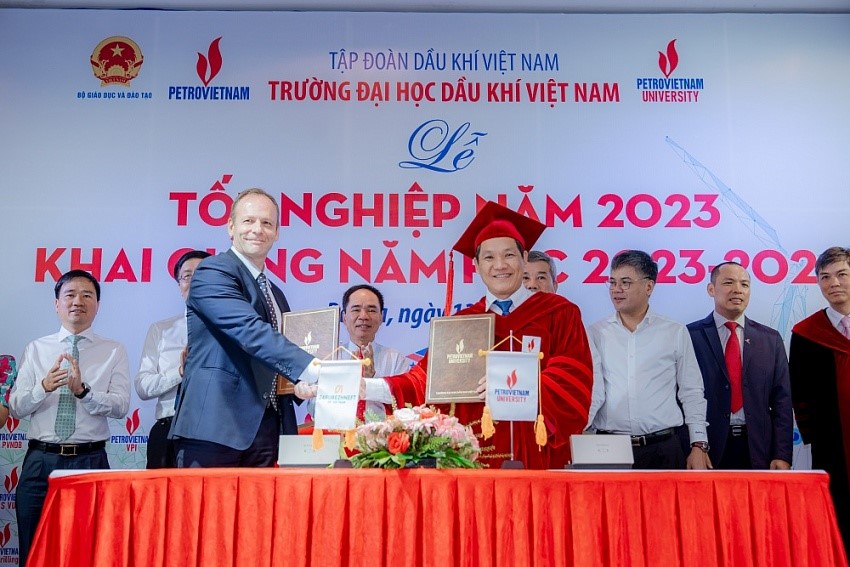
PVU has consistently emphasized partnerships with domestic and international enterprises to enhance its research and training capabilities, meeting the practical training and human resource development needs of businesses.
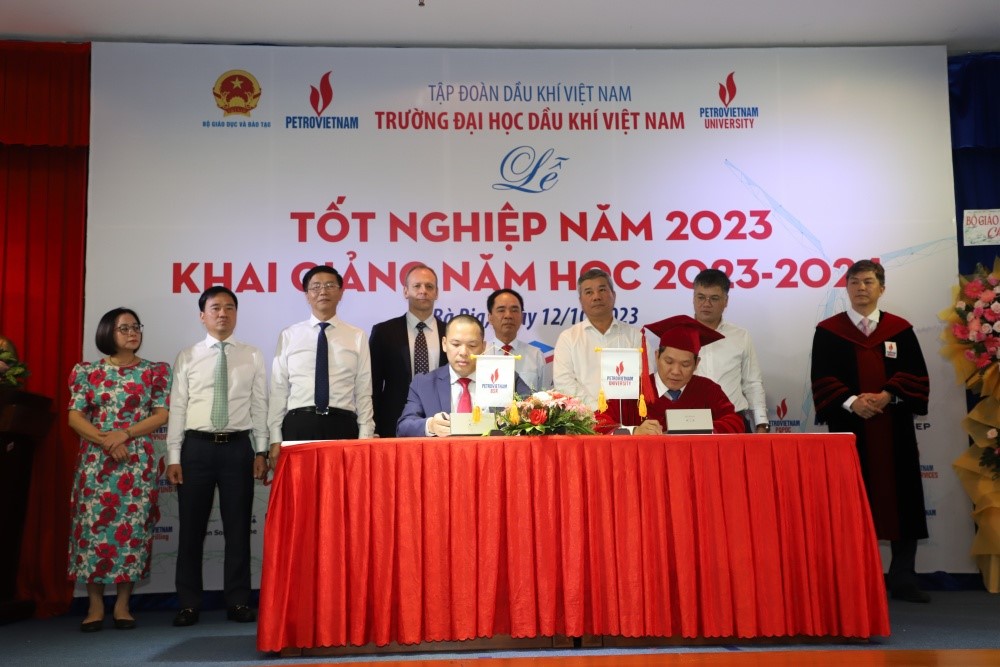
TSimilarly, PVU and BSR signed an agreement to research and develop training programs and internships, as well as to exchange and share specialized knowledge through scientific workshops and similar events, tailored to the specific needs of each party. Both organizations committed to exploring cooperative opportunities, proposing and implementing research topics, and applying science and technology in their operations. This collaboration also includes opportunities for experts from both parties to participate in and contribute to scientific reviews, tasks, and initiatives, writing and presenting scientific reports at seminars, and publishing in scientific journals, both domestically and internationally, on a voluntary basis and in compliance with each organization's regulations. Part of this collaboration will focus on exploring financial support or scholarship opportunities for students and prioritizing their employment if they meet BSR's needs and requirements.
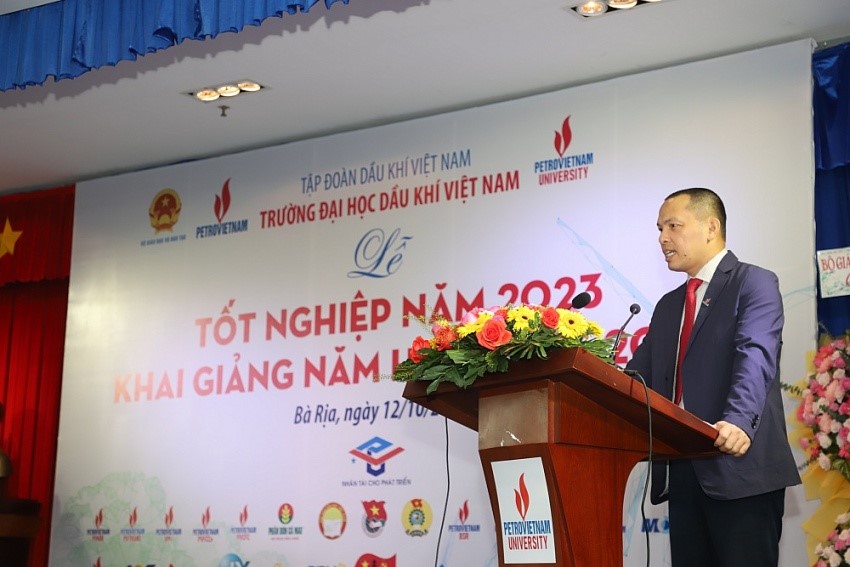
Mr. Tran Thai Bao, Deputy General Director of BSR, congratulated PVU on the successful organization of the graduation ceremony and the new academic year's inauguration. He highlighted that the memorandum of understanding not only demonstrates the close interaction between production units and educational institutions but also signifies the commitment of both parties to apply the latest knowledge and technology for the betterment of the community and society. He expressed confidence that the cooperation between BSR and PVU would open new chapters, explore new opportunities, and significantly contribute to the development of Petrovietnam and the Vietnamese oil and gas industry.
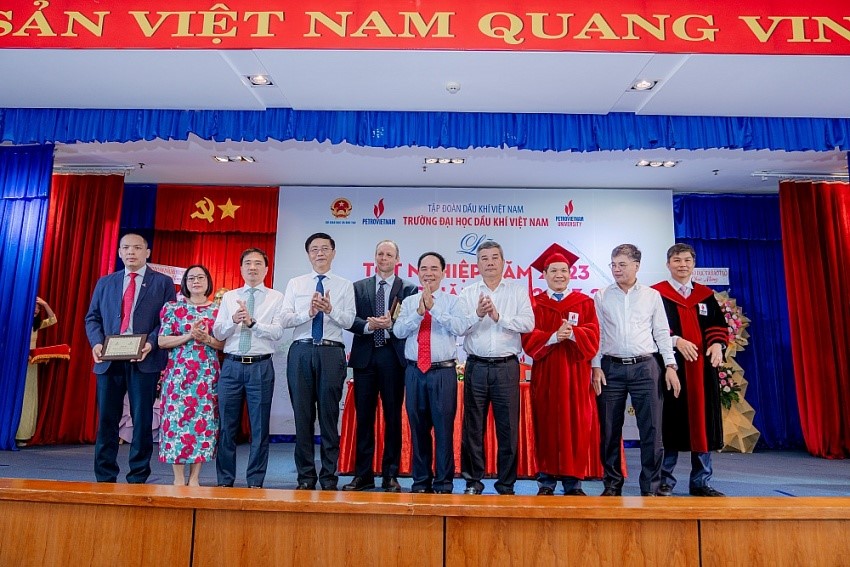
The cooperation agreements are expected to strengthen the relationship between the parties and contribute to improving the quality of training, research and development, technology transfer, and meeting the high-quality human resource needs of each organization.
An Nhien
Brochure khóa học: Power BI - Giải pháp trực quan hóa báo cáo
Degree
| Degree | Field | Institution | Year |
| BSc. | Chemical Engineering | Petrovietnam University, Vietnam | 2023 |
Rank
| Rank | Month-Year |
| Lab Technician | 10/2023 - Present |
Experience (Academic)
| Institution | Rank, Title | Year/Period | FT/PT |
| PetroVietnam University | Lab Technician | 10/2023 - Present | FT |
Special Duties
| Office/Department/Institution | Duty | Year |
| Research and synthesize rubber seed oil to biolubricant by polymerization | Lab Technician | 10/2023 - Present |

